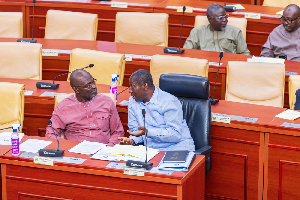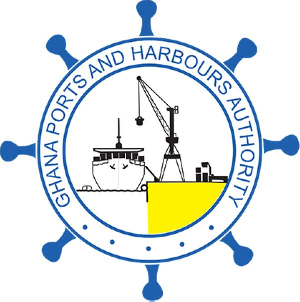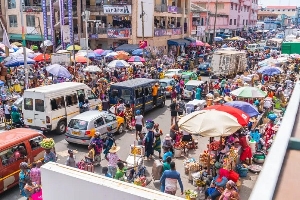... And Sustainable Development In Ghana
The 21st century is witnessing an increased threat to the depletion of many natural resources including water resources. Many parts of the world are experiencing rivers running dry, lakes and seas shrinking and falling water tables from over pumped aquifers.
If urgent measures are not taken, the ability of the earth to meet the water needs of the present generation as well as that of future generation is highly jeopardized. This factor echoes the need for interconnectivity between water resource management and sustainable development.
Sustainable development became an issue of global concern after the realization in the 1970s that the traditional pattern of development (development that aimed at growth in economic returns without regards to environmental consequences) was at conflict with the carrying ability of our planet earth. That is to say that our ‘three-planet life style’ (living as though we are entitled to the resources of three planets) cannot be supported anymore by the environment and therefore there was the need for a paradigm shift to our use of the environment.
The need to develop more sustainable practices for the management and efficient use of water resources, as well as the need to protect the environmental ecosystems where these resources are located cannot be overemphasized.
Legislation on water resource management in Ghana dates back to the pre-independent era. After independence successive governments have adopted several legislative instruments aimed at ensuring proper management of our water resources.
A thorough review of all the past and existing water resource management policies reveals that they are not sufficient to ensuring achievement of set targets or goals. Fundamentally, every water resource management policy of Ghana whether past or present had/has always been ineffective because of the fact that there is no sustainability element incorporated into the policy.
For instance Ghana is said to have met the UN MDGs on poverty reduction (poverty of 51.7% in 1991 reduced to 26.5% by 2008) and access to water (access to water from 42% of population to over 77%). But in a recent research, it has been found out that about 65% of the water schemes in Ghana have problems with functionality. This signals the fact that any MDG that is achieved outside a sustainable development framework indeed is not sustainable.
Ghana, and for that matter the world can only ensure that the present generation has enough water without compromising the ability of the earth to meet the water needs of the future generation if and only if water resource management is incorporated into a sustainable development policy.
Sustainable Development is and must be an issue of global concern. The United Nations has a full commission working to promote Sustainable Development. In 1992, at the United Nations Conference on Environment and Development (Earth Summit) in Rio de Janeiro the UN adopted Agenda 21, a comprehensive programme of action on sustainable development. Agenda 21 is a sustainable development blue-print to be adopted globally, nationally and locally by organizations of the UN, governments, and major groups in every area in which humans directly impact the environment.
Although Ghana has always participated in every conference of the United Nations on sustainable development issues including Agenda 21, yet Ghana is yet to actually adopt a working national sustainable development blue print which will encompass all other national, regional and local development policies binding on all individuals, institutions and organizations in both the public and private sectors.
What exists now in Ghana is a mockery of sustainable development. In 1996, the government as a signatory to Agenda 21 established the Committee for the Implementation of Agenda 21 under the direction of the ministry of Environment, Science and Technology. This to was just a hocus pocus and indeed a rash decision. That is to say it was hastily taken to deceive the world that the country was implementing the UN agenda on sustainable development as a ratifying member.
No where in the world has a serious government set up a committee to run its sustainable development policy. Usually, an independent commission and in some cases as in Wales, sustainable development blue print is enshrined in the state constitution and the constitution gives authority to a commission to be in-charge of sustainable development policy.
It is within such a national sustainable development framework that a sustainable water policy is carved out to ensure sustainability in water resource management.
The question then is, as it is the case now, if Ghana cannot boast of any working national sustainable development policy framework, can we talk about sustainability in water resource management? Your guess is as good as mine!
Why Sustainable Development?
The past three decades have seen a growing realisation that the current model of development; decoupling the environment from economic growth is unsustainable.
We behave as if we were having access to a three-planet resources leading to an increasing burden on the planet on which we depend: the consequences are already consuming us bit by bit. Already, we have unavoidable climate change increasing stress on resources and environmental systems – water, land and air – from the way we produce, consume and waste resources, and increasing loss of biodiversity from the rainforest to the stocks of fish around our coast.
How Can Water Resources Be Managed Sustainably?
There is a positive correlation between sustainable development and water resource management. That is to say, a country that has a WORKING SUSTAINABLE DEVELOPMENT POLICY automatically has in that sustainable development policy, a working sustainable water resource management policy.
The need to develop a more sustainable and down to earth policy for the management and efficient use of water resources, as well as the need to protect the environmental ecosystems where these resources are located cannot be overemphasized.
It requires high level of political will and self-ownership of policy from the government and citizenry respectively to institutionalize a working sustainable water management policy. Listed below are some of the guiding principles that a national sustainable water resource management policy must incorporate which must be adopted by central government and delegated to every sub-governmental level for implementation.
? Subsidies where necessary to improve efficiency of water use
? Reduce or eliminate water subsidies where applicable
? Charge polluters (Polluter Pays Principle)
? Add watershed management to pricing of water
? Research on water management-possibility of water research institute and universities, polytechnics conducting research that could lead to self-sufficiency in water
? Judicious use of water through e.g. recycling of own waste water for washing cars at home instead washing bay, watering flowers, gardens etc. through behaviour change policies
? South Africa policy: each household has a set amount of water at a low price; when users exceed this amount the price rises
? An all inclusive, Water Management Boards For each district or community in charge of all water resources
Recommendations
A thorough investigation on the water resource management policies and legislations in Ghana reveals that enormous work has been done. But all the past and present interventions lack the crucial issue of sustainability in them due to the fact that they were not drawn out of a national sustainable development frame work which prescribes how sustainability could be ensured in a national sustainable water resource management policy.
Mere legislation has always failed. Enshrinement of a policy in the constitution works better because it is binding on every government and for that matter the citizens to implement it (success of FCUBE). This makes it a national rather than a partisan policy.
Going beyond constitutionality, Sustainable Development should be seen more or less as a moral or ethical issue and therefore where there appears to be a lack of political will from the top politicians, then the citizens must see it as a collective duty to take decisions that would secure not only the collective needs of today but that of the future.
Ghana cannot think of achieving sustainability in water resources through isolated policies. Any sustainable water resource management policy must be linked with a national sustainable development policy framework.
We must therefore as a matter of urgency move beyond the setting up of a mere committee on Agenda 21 to the institutionalization of a sustainable development commission by which every institution or sector must draw its development goals from.
The UN Millennium Development Goal on education is that by 2015 every child of school going age should have free access to basic education. It is not therefore out of place to recommend that our education must be one that would bring about sustainability. How would that be achieved? Issues of sustainable development should and must be embedded in the school curriculum of Ghana.
There is the need for the use of multi disciplinary approach in the training and capacity building of planners and managers of water resources. Community participation and thus ownership of water resources must be incorporated into the sustainable water resource management framework.
Proper community animation and alternative livelihood activities should be provided to people who have been displaced as a result of water resource projects. This will prevent situations whereby people displaced tend to indulge in activities that will threaten the success of those projects e.g. the continued felling of trees along water bodies and the recent reported case of continued fishing at Cape three point despite the ongoing oil exploration, fishing along the lower Volta lake/river especially is becoming a threat to the ecology of the lake/river. Also the continued fishing near the turbines of the hydro electric power plant of the Akosombo dam is equally very dangerous. All these are a result of poor community animation and lack of alternative source of livelihood.
Capacity building of all institutions and agencies in water resource management such as the Water Resource Commission which should be changed to ‘Sustainable Water Management Commission’, the EPA, and other state institutions to ensure that they are capable of performing their duties.
Conclusion
It is a fact that Ghana is endowed with water resources that can meet the needs of the current generation without compromising the ability of the ecosystems holding our water resources to meet the needs of future generations.
But currently, Ghana is failing to meet the water needs of its population let alone talk about meeting the water needs of future generation or sustaining the ecosystems that hold our water resources because of a lack of a national sustainable development policy on water and all other resources of the country.
As we continue to mount pressure on our water resources without regards to the consequences our unsustainable lifestyles have on the future generation and the life of the environment itself, there will come a time that the water resources cannot support our living habits anymore.
Already, we are seeing the symptoms, our water bodies are drying up and usually our homes, farms, and communities are always flooded in the raining season only for us to ironically experience acute water shortage just in about two months after the rains have stopped.
All these developments mean that the time to act is now! Of course as expected, government is to always take the lead, but in instituting and sustaining a sustainable development policy and for that matter a sustainable water resource management policy, all the citizens, non-governmental bodies and businesses have a role to play because as Jennifer Elliot, 1996 puts it ‘‘the negative impact of our unsustainable lifestyles affect all without discrimination’’. But the poor are always at the worst receiving end.
Ghana and for that matter Ghanaians must act now to safe their lives today, the lives of posterity and the environment itself.
Author:
ISANG SYLVESTER
Email: applisa2000@yahoo.coo.uk
Opinions of Thursday, 26 May 2011
Columnist: Isang, Sylvester














